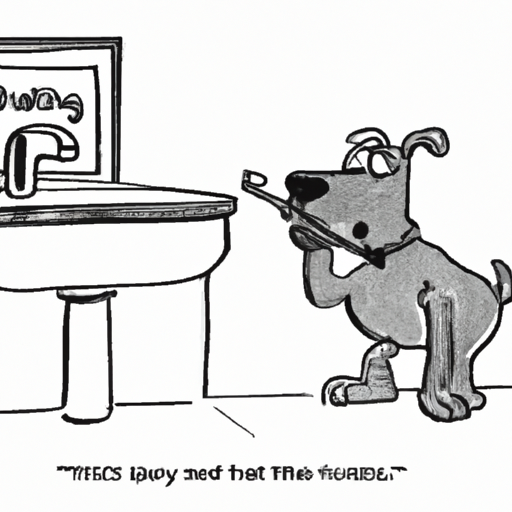As a devoted caregiver to your furry friend, it’s important to be aware of all aspects of their health. Bad breath in dogs might seem like a minor issue, but it could be a sign of more serious underlying health problems. Don’t worry, we’ve got you covered. Here’s a comprehensive guide on how to help your dog combat bad breath.
1. Understanding the Causes of Bad Breath in Dogs
First, let’s tackle the root of the problem. Bad breath in dogs can be due to a variety of reasons:
-
Dental issues: Just like humans, dogs can suffer from plaque, tartar and gum diseases which result in bad breath.
-
Dietary habits: Certain types of food can contribute to unpleasant breath.
-
Health issues: Bad breath can be a symptom of serious health issues like diabetes or kidney disease.
Understanding the cause is the first step to finding the right solution.
2. Regular Dental Care for Your Dog
Maintaining your dog’s oral health is crucial. Not only will it help combat bad breath, but it will also prevent serious dental diseases. Here are some ways to ensure your dog’s dental care:
-
Brush your dog’s teeth regularly: Use dog-friendly toothpaste and start with small steps to get your dog comfortable.
-
Provide dental chews and toys: They can help clean your dog’s teeth and freshen their breath.
-
Regular vet check-ups: Your vet can spot any dental issues early and provide professional cleaning.
3. Diet Changes for Fresher Breath
Your dog’s diet plays a significant role in the freshness of their breath. Consider the following tips:
-
High-quality dog food: Opt for dog food with natural ingredients and without artificial preservatives.
-
Additives for water: There are safe and vet-approved additives that you can put in your dog’s water to freshen breath.
-
Healthy treats: Offer treats that promote dental health, like carrots or apples.
4. Look Out for Underlying Health Issues
Sometimes, bad breath can be a symptom of a more serious health issue. If your dog’s bad breath persists despite your best efforts, it’s time to consult your vet. They can perform certain tests to rule out diseases like diabetes, kidney disease, or gastrointestinal problems.
5. Training and Habits for Better Breath
Training your dog to accept teeth brushing and regular oral care can go a long way in preventing bad breath. You can use positive reinforcement techniques to make the process easier for both of you. Start slowly and gradually increase the frequency of brushing.
Frequently Asked Questions
Q: How often should I brush my dog’s teeth?
A: Ideally, you should brush your dog’s teeth daily. But if that’s not possible, aim for at least three times a week.
Q: Can I use human toothpaste for my dog?
A: No, human toothpaste can be harmful to dogs. Always use a toothpaste specifically designed for dogs.
Q: Why does my dog’s breath smell like fish?
A: This could be due to their diet or certain types of dental chews. If the smell persists, consult your vet.
Remember, as a caregiver, your dog’s health is in your hands. With the right knowledge and tools, you can help your dog have a fresher breath and a healthier life.



